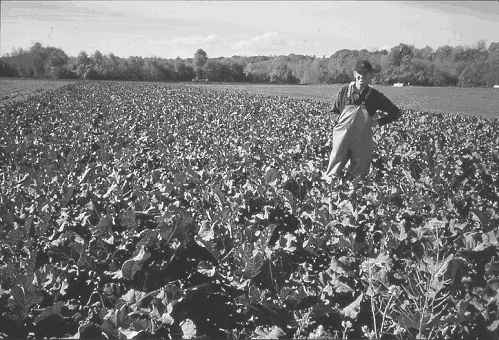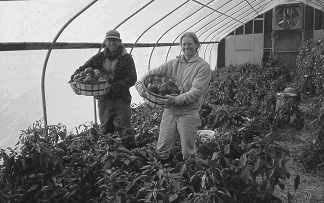 | Caithness.Org | Community | Business | Entertainment | Caithness... | Tourist Info | Site Map |
• Advertising • Chat Room • Contact Us • Kids Links • Links • Messageboard • News - Local & Scottish • News - UK & News Links • About / Contact Us • Submissions |
• Bookshop • Business Index & News • Jobs • Property For Sale • Property For Rent • Shop • Sutherland Business Index |
• Fishing • Fun Stuff • George, The Saga • Horses • Local Galas • Music • Pub Guide • Sport Index • What's On In Caithness |
• General Information • B & Bs • Backpackers • Caravan & Camping • Ferries • Getting Here • Holiday Letting • Hotels • Orkney • Pentland Firth • Sutherland • Taxis |
| N E W S F E E D S >>> |
Caithness News Bulletins October 2003
|
Community Supported Agriculture |
|
|
A feasibility study commissioned by HIE is under way to see if Community Supported Agriculture can be established on farms and crofts in the Highlands and Islands. This paper gives a brief outline of how CSA farming works and invites you to get involved in the study and have your say. Introduction This community approach to producing food locally is growing in popularity in many countries � in USA and Germany many thousands of small farms have switched to producing exclusively for local families. At a time when many small farms are being squeezed out by low prices and high costs, the CSA approach is enabling some small farms to survive, change what they grow and increase their income. CSA offers a route for communities to support local small farmers and get access to a supply of fresh and local produce, grown for them by a farmer they know. Highlands and Islands Enterprise (HIE) wants to see if Community Supported Agriculture could be feasible in the north of Scotland. The aim is to see if CSA could provide both healthy local food and an income for small farms and crofts in the Highlands and Islands, and the support that HIE can offer to help make it a success. The study is being carried out locally by a team led by Jo Hunt, from Cromarty, over the winter of 2003/4.
How does Community Supported Agriculture work?
CSAs vary widely in the size of the farm, number of �member� households and range of food they produce. The key common traits of
all CSAs are that: CSA is an unusual way to buy food: the key benefit to the producer is that they know who their customers are at the beginning of the season and that the risks of a variable harvest are shared by the consumers. The advantage to the consumer is that they get their food produced for them locally by someone they know, and get good value and involvement in �their� local farm.
Successful
Examples As well as paying for a share and receiving regular supplies of produce, most CSAs get their members involved in helping run the farm. Many CSAs have a committee made up of the producers and representatives of the consumer members, who meet regularly to plan what is to be grown and share out some of the organisational side of the business. Members may get involved in distributing the produce, writing a short newsletter or helping with weeding. Many CSAs offer a discount to members who help out with running the farm. Most CSAs also try to ensure fair trade. The price of a family �share� is set to cover the full costs of producing the food, including a fair wage for the farmer. Most CSAs also offer good value for money. By cutting out the middleman, the price paid goes directly to the farmer and expensive packaging, transport and retailing costs are avoided.
CSAs are more than a box scheme ~ a wide range of produce can be supplied through a CSA and the farmer has a group of sympathetic customers in the area, who understand and appreciate the work involved. Above all, the food is produced locally for the members by a farmer they know.
Feasibility of establishing CSA in the Highlands and
Islands � Are individual consumers
interested in CSA ~ and will they commit for a year? The feasibility of establishing many CSA crofts, farms, community gardens and woodlands in the Highlands and Islands is about finding farmers, crofters, community groups and consumers interested in working together. The study team will be visiting five very different areas in the Highlands and Islands to speak to people and organisations with an interest in local farming and healthy food, to see if they are interested in developing a CSA approach to local food and farming. The five areas being used
to �test the water� are: Like to find out more? If you would like to see more information on CSAs in the UK, have a look at the Soil Association �Cultivating Communities� website: www.cuco.org.uk . If you have questions
about the feasibility study or would like to arrange to meet with the
study team individually whilst they are in your area, please contact: |




 "don't
go into CSA if you want to make money�.but if you want to survive as a
local farm, like sharing the place with other people and want to remain
independent, then it could be worth your while"
"don't
go into CSA if you want to make money�.but if you want to survive as a
local farm, like sharing the place with other people and want to remain
independent, then it could be worth your while" 





